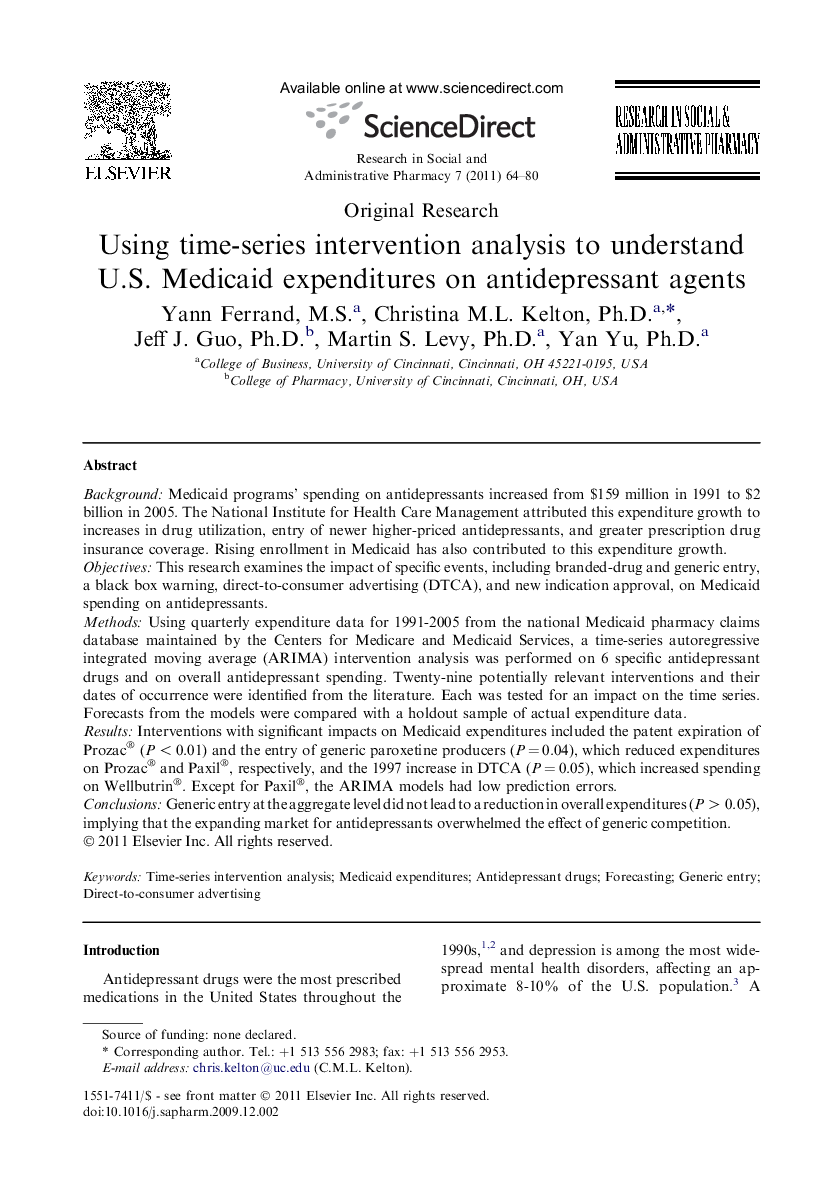| Article ID | Journal | Published Year | Pages | File Type |
|---|---|---|---|---|
| 2508667 | Research in Social and Administrative Pharmacy | 2011 | 17 Pages |
BackgroundMedicaid programs' spending on antidepressants increased from $159 million in 1991 to $2 billion in 2005. The National Institute for Health Care Management attributed this expenditure growth to increases in drug utilization, entry of newer higher-priced antidepressants, and greater prescription drug insurance coverage. Rising enrollment in Medicaid has also contributed to this expenditure growth.ObjectivesThis research examines the impact of specific events, including branded-drug and generic entry, a black box warning, direct-to-consumer advertising (DTCA), and new indication approval, on Medicaid spending on antidepressants.MethodsUsing quarterly expenditure data for 1991-2005 from the national Medicaid pharmacy claims database maintained by the Centers for Medicare and Medicaid Services, a time-series autoregressive integrated moving average (ARIMA) intervention analysis was performed on 6 specific antidepressant drugs and on overall antidepressant spending. Twenty-nine potentially relevant interventions and their dates of occurrence were identified from the literature. Each was tested for an impact on the time series. Forecasts from the models were compared with a holdout sample of actual expenditure data.ResultsInterventions with significant impacts on Medicaid expenditures included the patent expiration of Prozac® (P < 0.01) and the entry of generic paroxetine producers (P = 0.04), which reduced expenditures on Prozac® and Paxil®, respectively, and the 1997 increase in DTCA (P = 0.05), which increased spending on Wellbutrin®. Except for Paxil®, the ARIMA models had low prediction errors.ConclusionsGeneric entry at the aggregate level did not lead to a reduction in overall expenditures (P > 0.05), implying that the expanding market for antidepressants overwhelmed the effect of generic competition.
